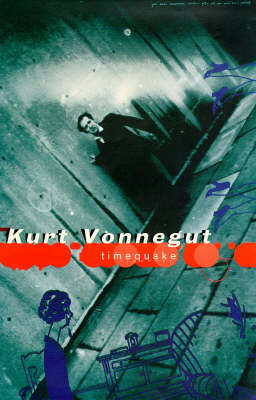Reviewed by mary on
.At its best, Timequake is still vintage Vonnegut, tough and unsparing in its rough humor
Reading updates
- Started reading
- 1 June, 2014: Finished reading
- 1 June, 2014: Reviewed

Kurt Vonnegut has often pointed out the ridiculous ways our society has conducted itself. Now, as both a character in and a chronicler of a bizarre event at the millennium, Vonnegut manages to make some sense of life as he's lived it - and observed it - for more than seventy years. According to Vonnegut's alter ego, science fiction writer Kilgore Trout, a global timequake will occur in New York City on February 13, 2001. It is the moment when the universe suffers a crisis of conscience. Should it expand or make a great big bang? It decides to back up a decade to 1991, making everyone in the world endure ten years of deja-vu and a total loss of free will - not to mention reliving every nanosecond of one of the tawdriest and most hollow decades. In 1996, dead centre of the 'rerun', Vonnegut is wrestling again with Timequake I, a book he couldn't write the first time and won't be able to now.
As he struggles, he addrresses, with his trademark wicked wit, the relationship between memory and deja-vu, humanism, suicide, the Great Depression and World War Two as the last generational character builders, the loss of American eloquence, the obsolescent thrill of reading books, and what 'extended family' really means.